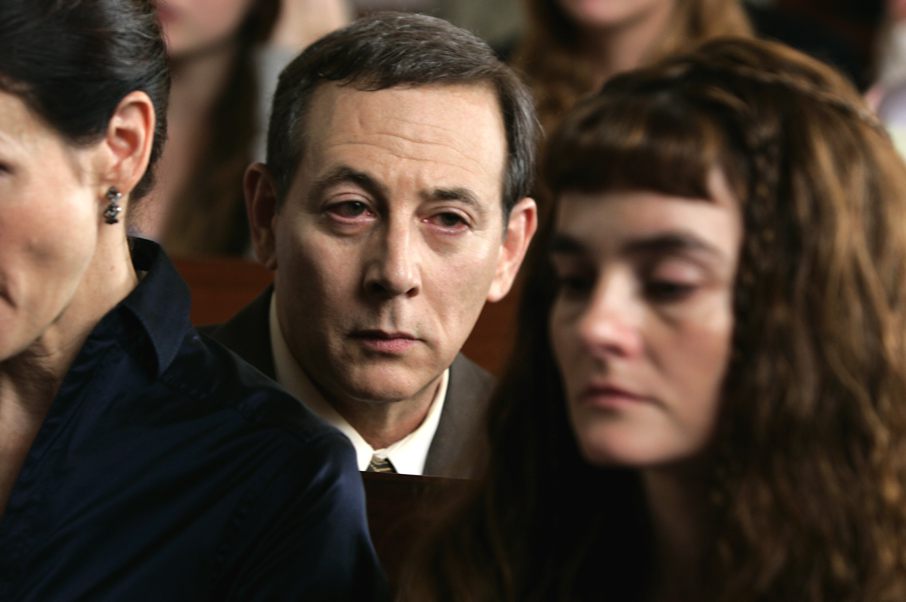A movie for every day of the year – a good one
28 July
Earl Tupper born, 1907
Who is Earl Tupper? He invented Tupperware, and was born on this day in 1907, in Berlin, New Hampshire, USA. After studying at Bryant and Stratton University, he went into business for himself, in landscaping and nursery, before the depression of the 1930s made him bankrupt. So he took a job with DuPont, where he found a use for polyethylene slag – a waste product from oil refining – reprocessing it and fashioning it into unbreakable containers. Later, he worked on the airtight lids and in 1938 he formed the Tupperware Plastics Company. The breakthrough for his company and Tupperware as a ubiquitous item came when Tupper, at the instigation of a saleswoman called Brownie Wise, moved the selling of his Tupperware out of shops and into people’s homes, where Tupperware parties hosted by company representatives took off. The parties were the first instance of “party-plan marketing”.
Life during Wartime (2009, dir: Todd Solondz)
Life during Wartime is Todd Solondz’s “quasi-sequel” (his words) to Happiness, the controversial rage against the tendency for American culture to go too hard on the Tupperware-Melamine-Apple Pie stuff and not talk about the other stuff. Happiness was Solondz’s Blue Velvet, a peeling back of the picket fence to see what’s lurking beneath.
So what is Life during Wartime? The film’s opening four scenes give us some idea. In scene one we meet a man and a woman having a meal in a diner. All is going well until the waitress spits in the man’s face. “He doesn’t do that any more,” says the ironically named Joy (Shirley Henderson). “Do you?” Joy asks, once the waitress has gone. “Sometimes, at the weekends,” he meekly offers. Scene two is a date, Harvey (Michael Lerner), a middle aged man, is telling Trish (Alison Janney), the woman he’s out to impress, that he’s moved house to be nearer his son. “Oh that is so beautiful,” she says. “Well he’s a beautiful son,” he says. “You’re a beautiful father,” she says. “You’re a beautiful…” “Don’t say it,” Trish jumps in. And then, after one beat, she says, “Say it!” “Say what?” Michael replies. In scene three Trish goes home and has an entirely inappropriate conversation with her son, aged maybe nine, about how she got wet when Harvey touched her. In scene four a man (Ciarán Hinds) out of prison for something (we’ll find out later what) finds a pubic hair on his “freshly made” hotel bed.
And on it goes, one disquieting scene after another, Solondz piling on the awkwardness and grossness. Scene four is when you might start wondering why most of these people have the same names as the characters in Happiness but are played by other people. Short answer: Solondz couldn’t get the other lot back, Philip Seymour Hoffman for one having become too busy/pricey. You might also wonder what Solondz is up to, when he’s going to explain himself. He never quite does, which either makes for an impressionist fugue of a social critique, or a frustrating string of unconnectedness that never quite adds up to anything. I’m in the latter camp, though I’m still recommending this film because its individual scenes are so striking, discomfiting and guiltily funny.
But also because Solondz is on to something – he’s trying to unpick what you might call the hippie pax emotionala, the way we have all agreed to behave with each other ever since the previous arrangement – in place from the late Victorian era to the 1950s – fell apart, largely as a result of its hypocrisies being too huge to ignore. The modern hypocrisies include paedophilia and as in Happiness Solondz interrogates the zeitgeist, wonders aloud whether our too-easy, too-liberal mores might have a dark side. It’s a question worth asking.
Why Watch?
- What a cast – including Paul Reubens and Charlotte Rampling
- No one turns over a stone like Solondz
- The genuinely funny, though dark, screenplay
- Ed Lachman’s deliberately suburban cinematography
Life during Wartime – Watch it now at Amazon
I am an Amazon affiliate
© Steve Morrissey 2014

